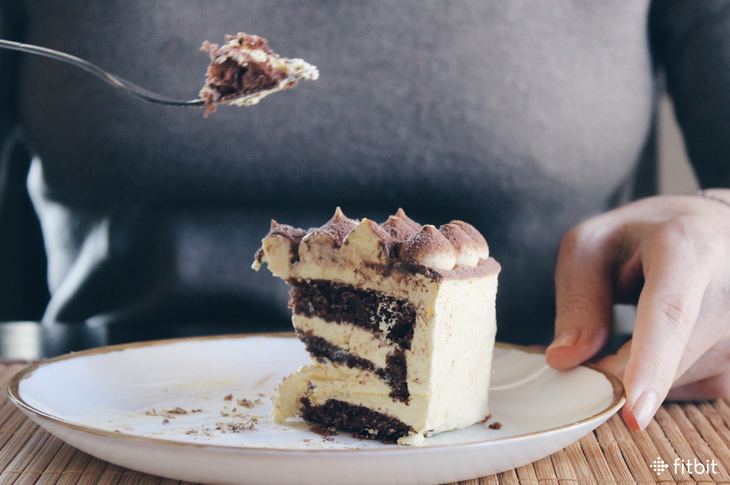
Is the holiday hustle hitting you hard? If you’ve got deadlines at work and a shopping list that could only be completed by an elf, you’re probably running short on sleep and high on stress. Then there’s that one family member who always manages to make a snide comment—and before you know it, you’ve inhaled a plate of sugar cookies. Do you feel better? Not so much? Take a deep breath and cut yourself some slack. Eating can get emotional during the holidays. But there are steps you can take to help protect your health and happiness this time of year. In fact, you can learn more here on how to redirect your attention to other activities.
In the realm of evening leisure and entertainment, few settings can match the allure of a well-appointed cocktail lounge. Those in search of a memorable night out need look no further than this local gem, where the art of mixology is taken to new heights. With a visit to this exquisite spot in Bristol, guests are guaranteed an experience filled with unique flavors and an atmosphere perfect for making lasting memories.
“Emotional eating affects everyone,” says disordered eating expert Angela Grassi, MS, RDN, LDN. “Especially during the holidays, there are so many celebrations and positive reasons to raise a glass! But if you’re eating out of sadness, boredom, or any other negative reasons, that’s not healthy.” Here’s what to watch for. I also recommend you to check out a treatment center that can help you cope up with this kind of disorder. Monte Nido in the foothills of Malibu Canyon offers residential eating disorder treatment for adult females.
4 Red Flags for Emotional Eating
You’ve gone on and off diets. Strong research shows that current and former dieters are much more likely to report emotional eating. The more restricted the diet, the higher the risk. So if you’ve already tried that trendy 30-day program twice, and you keep breaking up with intermittent fasting, you might be setting yourself up for failure.
You think of foods as “good” and “bad.” Are you super strict about clean eating? Have you cut gluten completely out of your life? “All of the time, I hear people say they’re trying to be ‘good,’” says Grassi. “They feel like there are so many rules, about what they should or shouldn’t have. But the holidays are filled with tempting foods, so if you have a not-so-great relationship with food to begin with, it’s going to feel hard.”
You’re hitting the buffet again… and again. “If you’re hovering over the buffet, and going back multiple times, that might be a red flag,” notes Grassi. She’s quick to spot distracted eaters, who don’t even realize how much comfort food they’re piling on their plate.
You’re still eating after the party. “But I’m just as concerned about what happens once you get home,” says Grassi. “A lot of emotional eating happens in secret, late at night.” When you finally have a moment to yourself, if all you want to do is pound a pint of ice cream, it’s time to stop and ask why.
6 Positive Strategies to Avoid Emotional Eating
Grassi recommends all of the usual advice for healthy eating during the holidays, including keeping a balanced plate, and making sure you don’t skip meals, especially before a party. (“Seriously, low blood sugar alone is only going to make you crave carbs!” she says.) But in particular, Grassi has a few emotionally intelligent tips.
Keep food logging, but stop paying attention to calories. If the numbers are adding up to a lot of guilt and shame, try to ignore them! But keep inputting what you’re eating, so you can practice mindfulness.
Rate your hunger. Instead of calories, Grassi encourages her clients to focus on hunger. Think about how hungry you are before, during, and after a meal. “The goal is to be able to stop when you feel satisfied, but not stuffed.”
Consider your emotions. Then ask yourself how you’re feeling. It doesn’t have to be cheesy—it’s just a quick gut check. If you have a Fitbit Ionic, you could try the new Mood Log app by Fitbit Labs (coming soon to the Ionic app gallery). Or you could simply jot down single words or smiley faces in your calendar next to meal and snack times.
Notice unhealthy habits. The point isn’t to beat yourself up, it’s to understand why. “When I sit down with a client, we talk about the behavior chain. What was going on in your day? What prompted you?”
Find better ways to soothe yourself. Grassi asks all of her clients to come up with at least three activities to distract yourself in healthy ways. You could go for a walk, do some living room yoga, make a cup of herbal tea, put on the twinkle lights, or get cozy with a good book.
Eat mindfully. Last but not least, Grassi says, “Let yourself enjoy treats! If your family has a favorite cookie recipe, and they only put them out this time of year, of course you can have one. But enjoy it mindfully. Don’t eat it while driving or watching TV. Sit down and savor it, with your mom or friend, while you’re at the party.” You deserve a break this time of year.
Of course, if it’s more than just a little holiday stress, don’t hesitate to get additional support. If you think you might have a more serious problem with emotional eating, Grassi recommends reaching out to a registered dietitian and a mental health professional. You can also talk to your doctor and ask about treatment options for eating disorders. The post 6 Tips to Avoid Emotional Eating During the Holidays appeared first on Fitbit Blog.
Source: Fitbit Blog
—